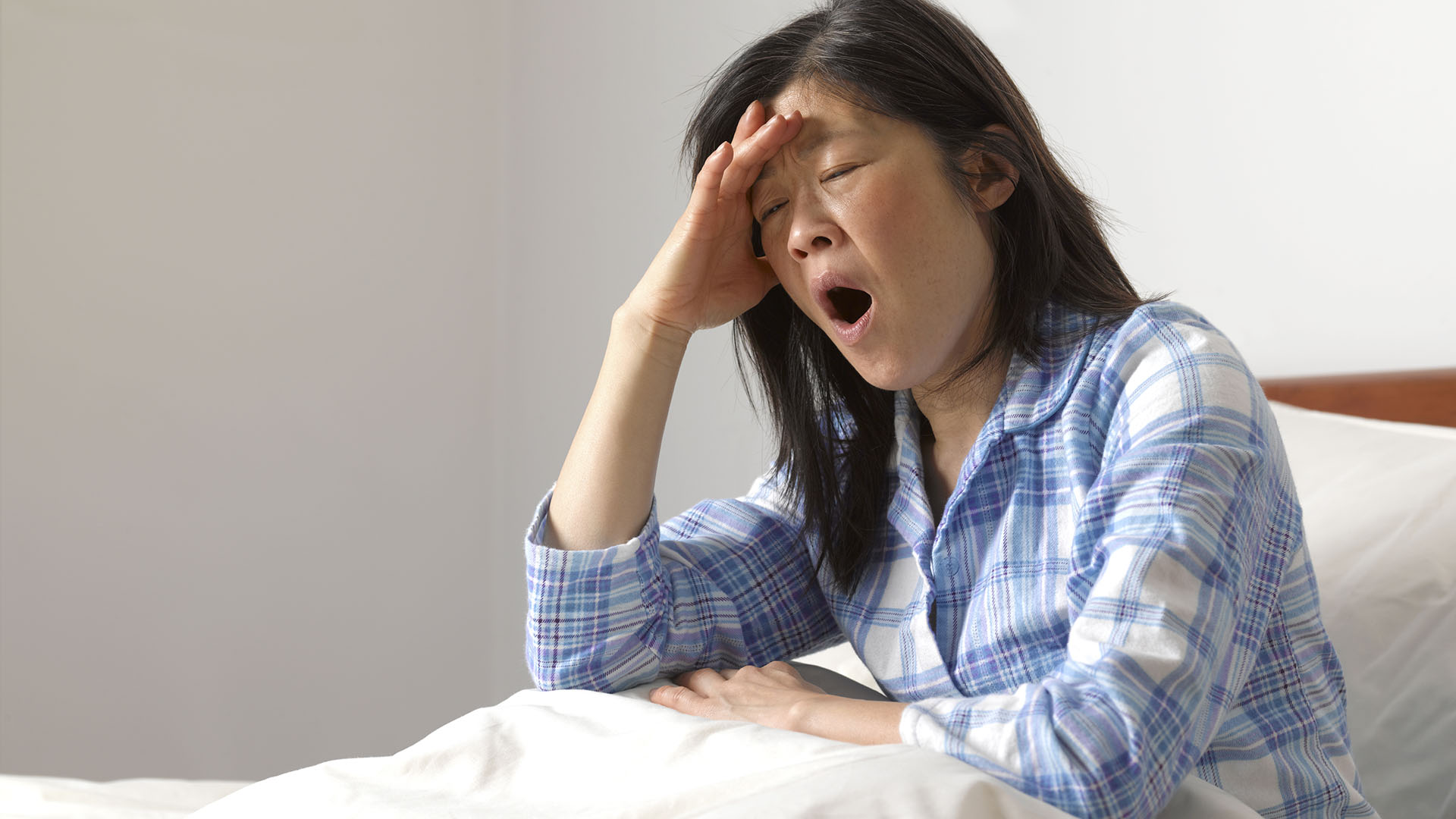Is a lack of sleep making you sad? Expert explains how sleep impacts our emotions
We spoke to a sleep expert to find out how sleep (or lack of) affects how we regulate our moods

January is widely considered to be one of the more depressing months. 'Blue Monday' has just passed, and while most people know now that this so-called 'most depressing day of the year' doesn't have any kind of scientific basis (it was made up by a travel company to sell holidays), that's not to say there's no truth to the idea at all. Many people experience some kind of January Blues, and some of that is likely to do with your sleep patterns over the winter.
How much sleep you're getting, and the quality of that sleep, impacts on how we regulate our emotions. We spoke to a sleep expert to learn more, and find out if there's a way to 'bio-hack' your way to a more restful night's sleep (and a more cheerful mood this January).
Can sleep affect your mood?
"As one of the main constituents in our wellbeing, sleep can play a vital role in our mental health," explains Theresa Schnorbach, a Sleep Scientist who works with mattress brand Emma (one of our best mattress brands).
General advice is that adults need between 7 and 9 hours a night. If you're not getting that, you might see an effect on your mood as a result. "Studies show that optimal sleepers experience fewer symptoms of mental health issues like anxiety and depression," adds Theresa.
"Sleep is a natural mood-booster and enables us to perform at our best socially, mentally and physically, so getting a good night’s rest can also lead to having improved mental wellness."
How does the body respond when you don't get enough good quality sleep?
"A lack of sleep leads you to get less of the early, restorative stages of sleep and impacts the part of your brain that deals with emotions, leading to irritability and feelings of sadness," explains Theresa.
"During the later stage of sleep, known as REM, concentrations of the chemical noradrenaline, associated with stress and anxiety, are shut off within the brain whilst the structures of the brain associated with emotion and memory are reactivated. When your sleep is interrupted, these processes are also interrupted, which can in turn lead to a poorer regulation of emotion."
Sign up to get the BEST of Tom's Guide direct to your inbox.
Get instant access to breaking news, the hottest reviews, great deals and helpful tips.
Why can January be a particular challenge?
The main problem here is to do with daylight, or lack thereof. The circuit in our brains that controls the production of the hormones that regulate our sleep-wake cycles is sensitive to light. That means, on a dull winter day, the brain doesn't receive the same signal to stay awake and alert (that's why it's so difficult to wake up when it's dark).
"This limited light exposure leaves us feeling more tired. However, while we may feel a greater desire for sleep, our daily lives do not often allow for this increased need for rest and it is this tension that can leave us feeling lethargic, groggy and can also impact mood," says Theresa.
Some people also struggle with SAD (seasonal affective disorder); a mild to moderate form of depression that occurs during the winter. Insomnia has been known to play a part in SAD, meaning those suffering are more likely to see their sleep quality impacted too.

Can you bio-hack your body to improve sleep in the winter?
While science is against us, there are things you can do to help you trick your body into better sleep in the winter. According to Theresa, one trick is to use different colors of light at various times in your sleep-wake cycle. When you're winding down for sleep, you want to be exposed to a light with lower brightness and a warm color. A study by Zhao et. al (2012) shows red light therapy can increase levels of melatonin – the hormone associated with sleepiness – and boost sleep quality as a result.
When you want to feel more alert, you need a blue-toned light. This will impede melatonin production and increase levels of cortisol, to keep you awake. "Getting this bright, colder-coloured light first thing in the morning is a great way to ensure better sleep in the evening," says Theresa. "On sunnier days, be sure you get out in the natural sunlight as early as possible in the day, as this will not only leave you feeling more refreshed, but also help you achieve better sleep."
Be careful not to expose yourself to this type of cool light when you're starting to wind down for bed, though, as this will make it more difficult to sleep. Theresa recommends activating 'night mode' on your devices in the hours before bedtime, to minimize the blue light emitted from the screen (or ideally, avoiding screens altogether for a few hours before bed).
Anything else to try?
Another issue is that in winter, the lack of sunlight means our bodies don't get much vitamin D. You can increase your intake by eating foods rich in Vitamin D (these include salmon, eggs, and enriched mushrooms), or taking a supplement.
"My final recommendation to help you achieve better sleep in January and throughout the winter is to stick to a clear sleep schedule," Theresa adds. "Consistent sleep and wake times allow your body to 'learn' a pattern and thus produce the right hormones to encourage sleeping and waking."

Theresa Schnorbach is a psychologist and sleep scientist, specialized in Clinical Psychology and Cognitive Neuropsychology. She has completed post-graduate training in Cognitive Behavioural Therapy for Insomnia (CBT-I) with the German Sleep Society (DGSM), endorsed by the European Research Society. She works as a sleep specialist for bed brand Emma.

Ruth is currently Homes Editor on Tom's Guide's sister site TechRadar, where she reviews and writes about everything from air fryers to vacuum cleaners to coffee machines, as well as the latest smart home gadgets. Prior to making the shift to Homes, Ruth was Tom's Guide's Sleep Editor. A certified Sleep Science Coach, she has tested more mattresses than her small flat can handle and will talk at length about them to anyone who shows even a passing interest.
